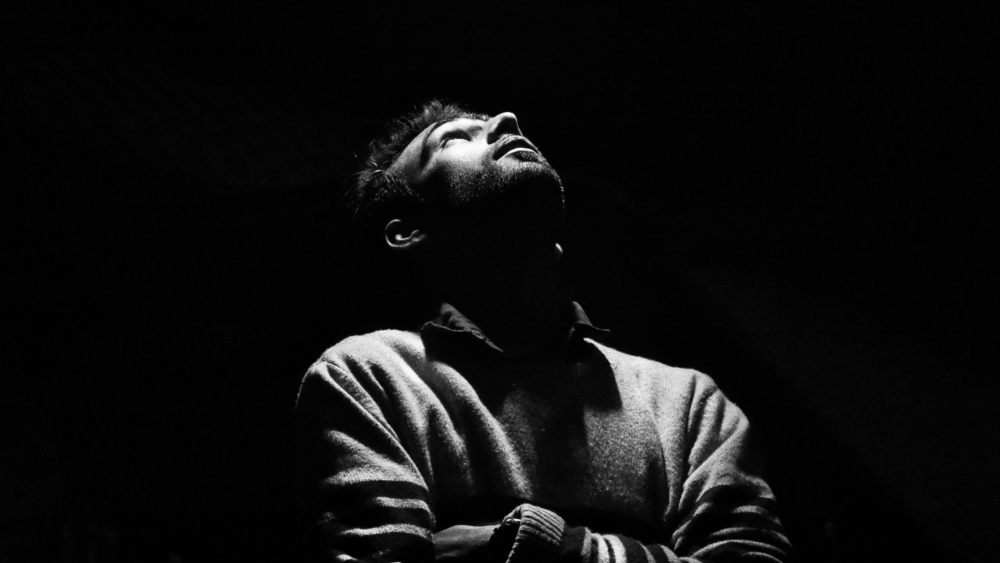Several years ago when there were multiple stressful events happening in my family, including the death of my brother from cancer, my health was impacted. I got to a place where I had trouble focussing to pray or read the Bible. The information just didn’t go in, and I couldn’t sit quietly to string words together in my head in mental prayer.
I found it difficult to connect to God in the traditional ways that I had been taught. It was tempting to conclude there was no point trying to pray or read the Bible, and give up.
Silent burdens impact our life
If I had done this I would have, in effect, decided deep within myself that God is unreachable.
What I have discovered is that feeling like this is very common at times of grief and loss, not just from the death of a loved one, but when we lose other meaningful things in our life, such as our dreams, our job, or something is just plain disappointing and unexpected.
It is also normal when we experience anxiety, depression, chronic fatigue, autoimmune disorders, or chemo brain, neuropathic pain, and other health conditions that impact our ability to concentrate, learn, feel and remember.
These silent burdens impact our life and make the most basic things like reading our Bible, listening to a sermon, or praying impossible.
Jars of Clay wrote a song called Silence that says:
I’ve got a question – Where are you?
Scream, deeper I want to scream.
I want you to hear me, I want you to find me.
I want to believe but all I pray is wrong and all I claim is gone.
St John of the Cross wrote about the ‘Dark Night of the Soul’. He describes these times as feeling like we are lost on the road. We feel like God has abandoned us and we lose our sense of peace.
We grow weary in practising our faith. It is at this time that we can feel like giving up on our faith all together. The pivotal moment that we can miss is the need to change our way of relating to God.
We need to stop relying on thinking, reasoning and emotional faith practices, and instead learn to trust God in a new way. Both head knowledge and emotional spiritual highs are not enough.
Paul writes in Romans 8, that nothing can separate us from God, and that Christ intercedes for us. This means that all those things I have listed cannot cut us off from God.
The Christian contemplatives have long warned us not to rely on our thoughts and feelings to be the sole guide to our faith. Humanistic psychology would echo this sentiment and say that our life cannot be directed and determined by our thoughts and feelings.
We can learn spiritual disciplines and “Be still and know that I am God”
A lot of the time, our thoughts are irrational, untrue and unhelpful. Our feelings can be unregulated and lead us to act in ways that are destructive.
This doesn’t mean we should completely disregard our thoughts and feelings as part of our experience of God. The problem is one of discernment, and there are times in our life when it is harder to see what the Spirit is saying to us. This is why we need to line up our understanding with Scripture, circumstances, and the views of trusted Christians around us.
It is important that we find hope and a path through to God so that it is possible to connect again. St John of the Cross talks about this as being through contemplation. In psychology, some theories of the human mind make a distinction between our rational self (e.g., our thinking), and our observing self (e.g., our consciousness). They say that finding ways to reconnect to everything around us means less emphasis on our thoughts and feelings, and growth in our ability to be present and focus on what we are doing in the now.
Our pre-Enlightenment church tradition, is full of practices that use the observing self to engage in contemplative prayer and meditation on Scripture.
We can learn these spiritual disciplines and “Be still and know that I am God” (Psalm 46:10). This knowing is not rational, it is a deeper knowing that goes beyond ourselves.
Richard Rohr describes this as our spirit communing with the Holy Spirit.
Dr Katherine Thompson is the author of Christ Centred Mindfulness.

